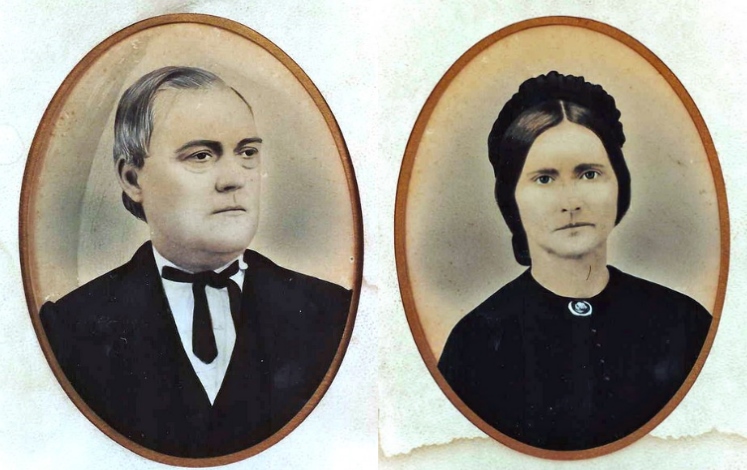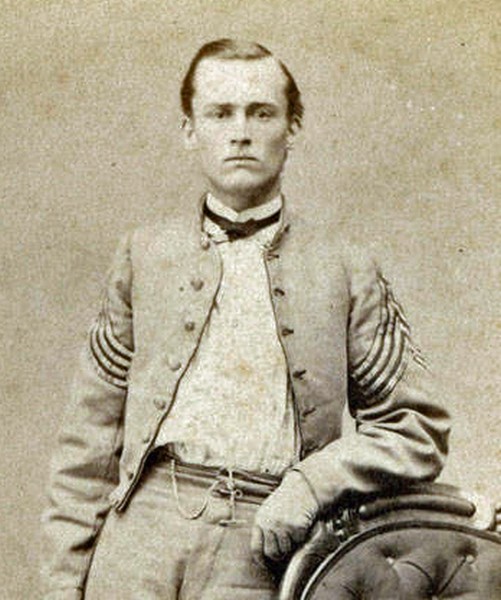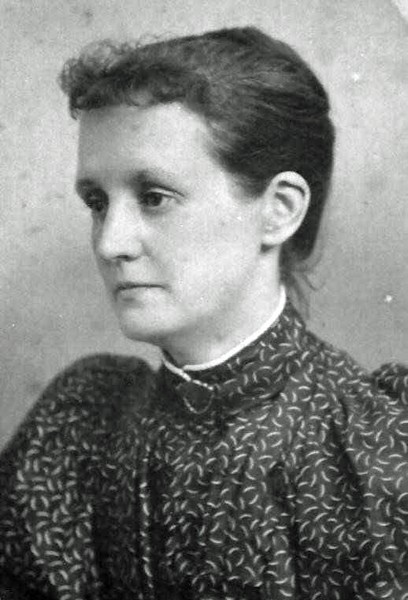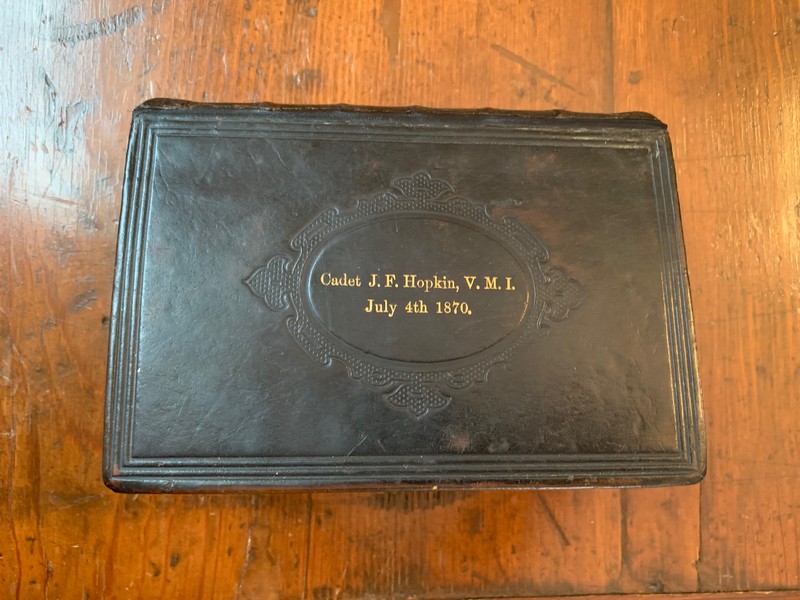Perspectives on Our Past
This column, the third about our Founders, continues the events leading up to Sigma Nu’s 150th Anniversary in 2019. We’ve focused each of the preceding years on one of the three Founders. Thus, the Fraternity has designated 2019 as “The Year of Hopkins.” Future announcements will highlight the additional events and activities planned for the 150th celebration. I have tried in this column, where possible, to use the words of our Founder from his letters and speeches.
Many years ago, a young man wrote to the president of the college he was attending. Economic times then were tough, and he preferred to deal directly and honestly with his financial situation.
“You know as well as I do, the low state of my finances as far as concerns what I now owe. I prefer to settle up at once, to staying here to graduate and then leave in debt. I may be forced to tender my resignation on the weight of your answer.”
The president, being a great believer in the young men in his charge, wrote back and said together they would figure out a way to cover the costs. That president was General Francis H. Smith, the Superintendent of Virginia Military Institute. The young man’s letter is dated January 16th, 1868, many months before the founding of Sigma Nu. The young man was James Frank Hopkins and what a difference it would have made in each of our lives if General Smith had not been willing to find a way to assist this outstanding young man. Hopkins would not have returned to VMI, and Sigma Nu would never have been born. General Smith knew the importance of education and how much a little help then would reap in dividends in the future.
James Frank Hopkins’ full name was James Franklin Hopkins, but he was often called just Frank Hopkins. He was born on December 30, 1845, in the small northern Mississippi town of Ripley, in Tippah County. He was the son of Colonel John Wilson and Elizabeth (Craig) Hopkins — both descended from Scotch-Irish roots. He was one of five children born to the couple.
Forebears
Our Founders’ father, Colonel John Wilson Hopkins, was born in Rowan County, North Carolina in 1820. He was the son of James Farley Hopkins and Lucy (Henley) Hopkins, both also born in North Carolina. When John Hopkins was about five years old, the family relocated to Tennessee and, in 1830, to Tippah County, Mississippi. Colonel Hopkins would later serve Tippah County as its sheriff for two years.
Founder Hopkins’ grandfather, James Farley, was a wealthy landowner and owned several plantations. His son, Colonel John Wilson Hopkins, inherited his father’s lands and added to them. To manage his properties and to provide a better education for his sons, Colonel Hopkins moved his family to Memphis in 1855. By the time the Civil War began, he owned 125,000 acres in Mississippi, Tennessee, Louisiana, and Arkansas. At the outbreak of the war, Colonel Hopkins moved the family from Memphis to Arkansas Post on the banks of the Arkansas River. Due to the Civil War, the family lost everything. At some point during the war, Colonel Hopkins moved the family to Little Rock where he became involved in the real estate business. He served as an early mayor of Little Rock from January 10, 1867, to February 28, 1868.
Founder Hopkins’ mother’s family was no less distinguished. Her father, John Coffey Craig was born in South Carolina and was a soldier in the War of 1812. His father, originally from Ireland, served as a soldier in the American Revolution.

Colonel John Wilson Hopkins and Elizabeth (Craig) Hopkins
Pre-VMI
After earning an education in Memphis, Founder Hopkins, although only 18 years old, fought in the Civil War. Although young, since he was an expert horseman; his duties consisted of courier work, running messages between the lines, and serving as the division’s color bearer.
After the war, Hopkins had to earn his keep and decide on his future. At the 1910 Grand Chapter, he spoke of those trying times.
“I went to work, as I told you, in my nineteenth year and I worked like a man, too, early and late, until I was nearly twenty-one years of age. I was making other plans and I had that respect and that love for my father that I always consulted over my future plans with him, recognizing that his judgment was much better than mine. I told him what I intended to do. He said, "Frank, I am glad you have brought up that subject. I have been thinking, too, about your future, but," he said, "your plans won't go." Well, I looked up in amazement. He had no money to amount to anything. I had no money to amount to anything, and what the future had in store beyond labor and exertion I could not see. He said "You have got to finish your education; you have got to go to college." "Why, Pa, you have not got the money to send me to college. It requires the exertion of both of us even now to meet the necessary demands upon us." "Don't bother yourself about the money, you must finish your education."
Enrollment and Time at VMI
In 1866 he entered VMI at the age of 20. He was older than most of the other cadets and more experienced in the ways of life. Thus, he immediately assumed a leadership role in his class and among the cadets.
Although we don’t know for sure why Hopkins enrolled at VMI, I speculate that it may be for practical reasons since no other southern military school was open as quickly as VMI after the end of the Civil War. For instance, The Citadel in South Carolina did not reopen until the mid-1870s. Based on his ancestor’s involvement in prior military engagements and his participation in the Civil War, I suspect he, and his father, decided a military school was appropriate for his continued education.
In 1868, while attending VMI, he applied, and the Lexington Lodge of the Masons initiated Founder Hopkins into their order. This initiation was many months before the founding of Sigma Nu but had a definite impact on his later actions.

Cadet James Frank Hopkins
At the time the Founders entered VMI, a severe form of hazing was practiced to bring the incoming cadets, known then and now as Rats, into submission to the upperclassmen. Hopkins felt the hazing then practiced went too far. Once his tormentors pushed him to his limit, he proceeded to fight back against them. Being large of stature, older, and more experienced than most of the upperclassmen, he had no difficulty in fending off his attackers. Having fought them off, he then took up the cause of his fellow cadets who could not defend themselves. These cadets soon became known as “Hopkins’ Rats.”
A few years before Sigma Nu’s founding, another fraternity formed at VMI. Once established, it started giving the preference of plum Cadet Corps positions to its members. Non-member cadets perceived this treatment as unfair and lacking in merit. As a result, in October 1868, Hopkins approached Greenfield Quarles, James McIlvaine Riley and others to form a new organization to break the firm grip of this first group on the Corps. Although this was not the only reason Hopkins and others founded the Legion of Honor, it was a very attractive motivation for others to join with them. Hopkins wrote the original ritual of Sigma Nu when he was 23 years old. Based on his young age at the time, he likely was heavily influenced in his writing by the ritualistic ceremonies of the Masons. I have been told by my friends who are Masons that there are some similarities between the two.
Founder Hopkins also created the design of the Sigma Nu badge. He designed it after the style of the Cross of the French Legion of Honor medal. Napoleon established that award in 1802 as the highest French decoration for military and civilian service. The principles underlying that award had influenced the code upon which VMI operated at the time of Hopkins’ attendance. He also designated the symbols and Greek letters engraved upon the badge.
Although Hopkins was the prime founder of Sigma Nu, he always took a behind the scenes leadership role. This trait is exemplified by his deference to James Riley to serve as the first Eminent Commander of Alpha Chapter and Regent of the fraternity. Hopkins was satisfied to serve in the backup roles of the first Lieutenant Commander of Alpha Chapter and the Fraternity’s first Vice-Regent.
Hopkins graduated with the VMI class of 1870, along with Cadets Quarles and Riley. The graduation took place on July 4, 1870. On the day before graduation, Superintendent Smith presented each of the graduating first classmen a Bible. When Sigma Nu chartered our Rhodes College Chapter on February 10, 1934, the Bibles given to Founders Hopkins and Quarles were on the altar at which the new initiates took their oath. After the ceremony, Benjamin West Hopkins, the grandson of Founder Hopkins and an initiate of our Arkansas Chapter, presented the Hopkins’ Bible to the Fraternity. That Bible received by Hopkins now has a prominent place in our museum in Lexington.
Hopkins wrote the following passage in his Bible.
“V. M. I., July 3, 1870. Today is one of the saddest days of my life. Our class met Gen'l Smith at 3 o'clock and after some very touching remarks and good advice, gave us each a Bible. I can hardly realize that when we left the section room, our class which has been so closely and constantly thrown together for four years, had been together as an unit for the last time. That ties of true friendship which have been repeatedly tested must be broken, and for many, finally broken, some few of us may meet again, but all of us never. How solemn and lonely that word never sounds. Oh! Father aid me, strengthen me, that I may keep perfectly the advice of our faithful Superintendent."
Just four months after his graduation, Hopkins married a young lady from a prominent Lexington family – Jennie Ann Barclay. They married on November 8, 1870, in the Lexington Presbyterian Church. After their marriage, the couple moved to Little Rock, Arkansas.

Jennie Ann (Barclay) Hopkins
Post VMI Professional Career
Upon returning to Little Rock, he took up his profession as a civil engineer. He served with the Engineering Corps of the Rock Island Railroad and a term as county surveyor for his county. After several years, he went to work with his father in the real estate business.
However, in 1874, political strife rocked Arkansas and resulted in armed militias around Little Rock engaging in heated battles. As Hopkins described it, the resulting strife “mined me financially, and I have not been able to recover from the effect of it.”
As a result, the entire family, including his parents, moved to Mabelvale, 10 miles southwest of Little Rock, and purchased land for farming. Hopkins and his father worked together farming until his father was no longer able to do so, due to age. In 1891, Hopkins also had to deal with infirmaries and was no longer able to engage in hard labor. At that point, he started renting out his land to sharecroppers to farm.
He lived a quiet life but was involved in many activities locally. He served as a school director for 18 years, a Justice of the Peace for 25 years and a ruling elder of the Presbyterian Church for 20 years. He, and his wife Jennie, also found time to serve with the Order of the Eastern Star, an adjunct body of the Masons. He served as Grand Patron from 1892-1895 and then as Grand Secretary from 1905-1911, following his wife who served from 1897-1900.
In 1905, his wife Jennie died. She had been ill and infirm for many years before her death.
Alpha Chapter’s Revival
He met Ora Baldinger, a VMI cadet, who was interested in returning Alpha Chapter to VMI at the 1908 Grand Chapter. Baldinger’s strong desire to revive Alpha Chapter so inspired Hopkins that he promised to come to Lexington for the installation of the Chapter. Good to his word, he returned to Lexington for the very meaningful event.
In December 1909, Hopkins traveled back to Lexington and VMI for only the second time since his graduation. He was there for the formal solemnization of Alpha Chapter’s return to VMI and said, “he simply could not stay away from such a scene.”
Afterward, Hopkins asked Baldinger to accompany him around the buildings and grounds of VMI. While on the parade ground, they stood before the Rock of Sigma Nu and Hopkins explained the role of the limestone outcropping in the Fraternity’s founding. Baldinger would long remember their time together and Hopkins’ description of the Fraternity’s beginning. That memory would drive Baldinger to lead the effort to recover parts of the Rock so many years later.

Descendants
James and Jennie Hopkins had six children – three boys and three girls. The oldest, Frank Barclay Hopkins, was born in 1871. Another son, Clay Woodruff Hopkins, was born in 1874. Just two years later, in 1876, they had their first daughter, Elizabeth “Bessie” Hopkins.
Their third son, Hugh Barclay Hopkins, was born in 1877. Their final two children were both daughters. Annie Railey Hopkins was born in 1881 but died in infancy the following year. In 1884, their third daughter, Janie Hopkins, was born.
Sigma Nu chapters initiated several of Hopkins’ descendants into the order he so proudly founded 150 years ago. In 1928, our University of Arkansas Chapter initiated his grandson, Benjamin West Hopkins (the son of Frank Barclay Hopkins) into Sigma Nu.
In 1963, the University of Arkansas Chapter also initiated his great-grandson, Dr. Milan L. Hopkins (the son of Benjamin West Hopkins).
Additionally, he had two great-great- grandsons initiated into the Legion of Honor. In 1978, our University of Arkansas, Little Rock Chapter initiated Benjamin D. Waldron, and in 1990 our University of Central Arkansas Chapter initiated Jonathan Runnells.
Death
Founder Hopkins died in Mabelvale, Arkansas on December 15, 1913. The immediate cause of death was a tubercular infection of the throat. He was 67 years old. His family held the funeral services on December 18th from the Mabelvale Presbyterian Church.
His family buried him in the Martin Cemetery in Mabelvale, the resting place of many of his immediate family. The cortege accompanying his casket was over a mile long, attesting to the high esteem he was held in by those who knew him.
Greenfield Quarles was the last of our three Founders to die. Founder Hopkins preceded him by eight years. Quarles spoke at the dedication of James Hopkin’s monument held on May 7, 1920, just eight months before Greenfield’s own death. It must have been particularly moving to him to reminisce about Hopkins and the events that took place at VMI over 50 years before. I think you can sense it in his words that day:
“Fifty-four years ago I first met and knew Frank Hopkins. It was at the Virginia Military Institute in Lexington, Virginia. I hold in my hand photographs taken near that time; they show we were boys, he 20 and I 18. We were active, ambitious, confident of the future and the world was before us. We were filled with a desire to do something worth while. Brother Hopkins formulated the principals of Truth, Honor, and Brotherly Love, called about him a chosen few and under the stars looking into infinite space and calling on the God of the Universe to bless us, established Sigma Nu. The photographs have faded, we have changed, our dear Brother has been called to “go up higher,” but the principals then and there annunciated will live always. His example has instilled into the hearts of us all the principles which guide us now, and those principles will go down to future generations for all time. All that was mortal of Brother Hopkins lies buried here, but his immortal spirit will live forever. I believe that from that place prepared by God…that our brother is looking down on us today.”
In addition to his wife, Jennie, who preceded him in death, his parents are both buried in the family plot. Also, the small cemetery holds the final resting place of five of his six children.
As I mentioned in my column in the previous issue of The Delta, Gary L. Smith, an initiate of our University of Arkansas, Little Rock Chapter, recently renovated the Hopkins’ family plot with new fencing, sod, and landscaping. Gary’s efforts have brought the site back to the beautiful and special place of remembrance for our brother who started it all 150 years ago.
And so ended the life of service of Sigma Nu Founder and Alpha Chapter initiate number 1 — James Frank Hopkins.